Marie Claire Changemakers 2021: meet the Gen Z activists transforming the world
The pandemic’s changed our lives, but you're never too young to make a difference. Just ask these activists and grass-roots campaigners - five incredible women taking action in 2021
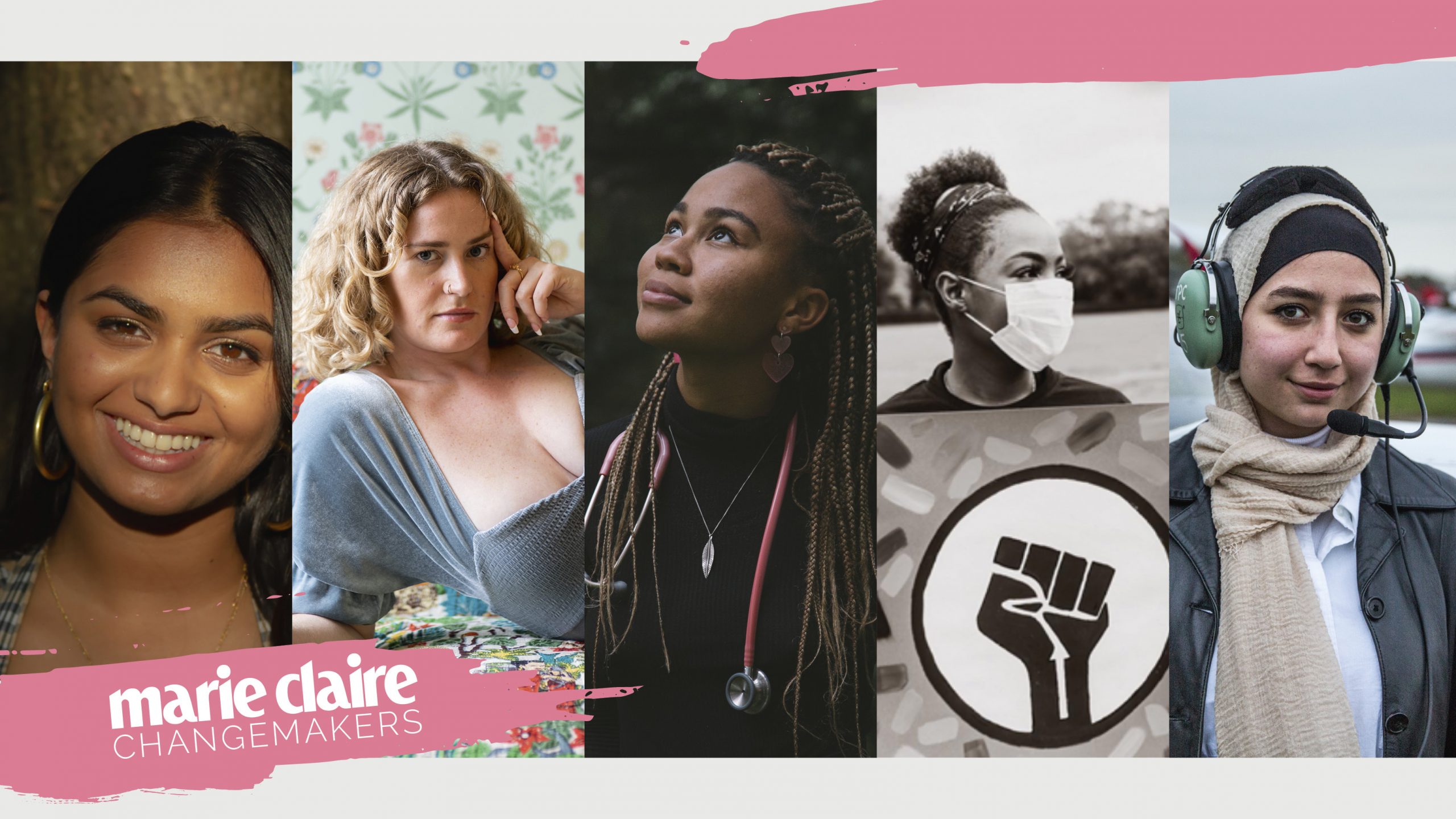

The pandemic’s changed our lives, but you're never too young to make a difference. Just ask these activists and grass-roots campaigners - five incredible women taking action in 2021
Coming of age in an era of disruption, Gen Z may face an uncertain future but many prefer to look ahead to a world of opportunities - a chance to bring about real change.
In spite of Covid-19 restrictions, 2020 saw Gen Z, connected by social media, rise to the challenge of global activism. Forced to stay at home, hashtag activism broke from its performative virtue signalling and began a revolution that, as the saying goes, ‘will be Instagrammed’.
From the heart-swelling rise of the Black Lives Matter movement and the growing ranks of climate justice activists (inspired by Gen Z icon Greta Thunberg, now 18, and entering her fourth year of committed campaigning) to food and period poverty campaigners, Gen Z are the changemakers we need now more than ever. Growing up in an ‘always on’ technological environment has propelled these awesome women to inspire real action and real change.
Enter the Marie Claire Changemakers: thanks to their tireless activism, campaigning and conviction these five amazing women are laying the groundwork for change. Change that will have a positive impact – not just in 2021, but for many years to come. Let’s join them on their mission to make the world and our lives better. As the roadmap to a world protected from Covid-19 unfolds, they're telling us how to make a lasting impact on an ever-changing world.
5 Gen Z activists who'll teach you how to be a change-maker in 2021
1. Mikaela Loach: The Ethical Fashion & Climate Justice Campaigner
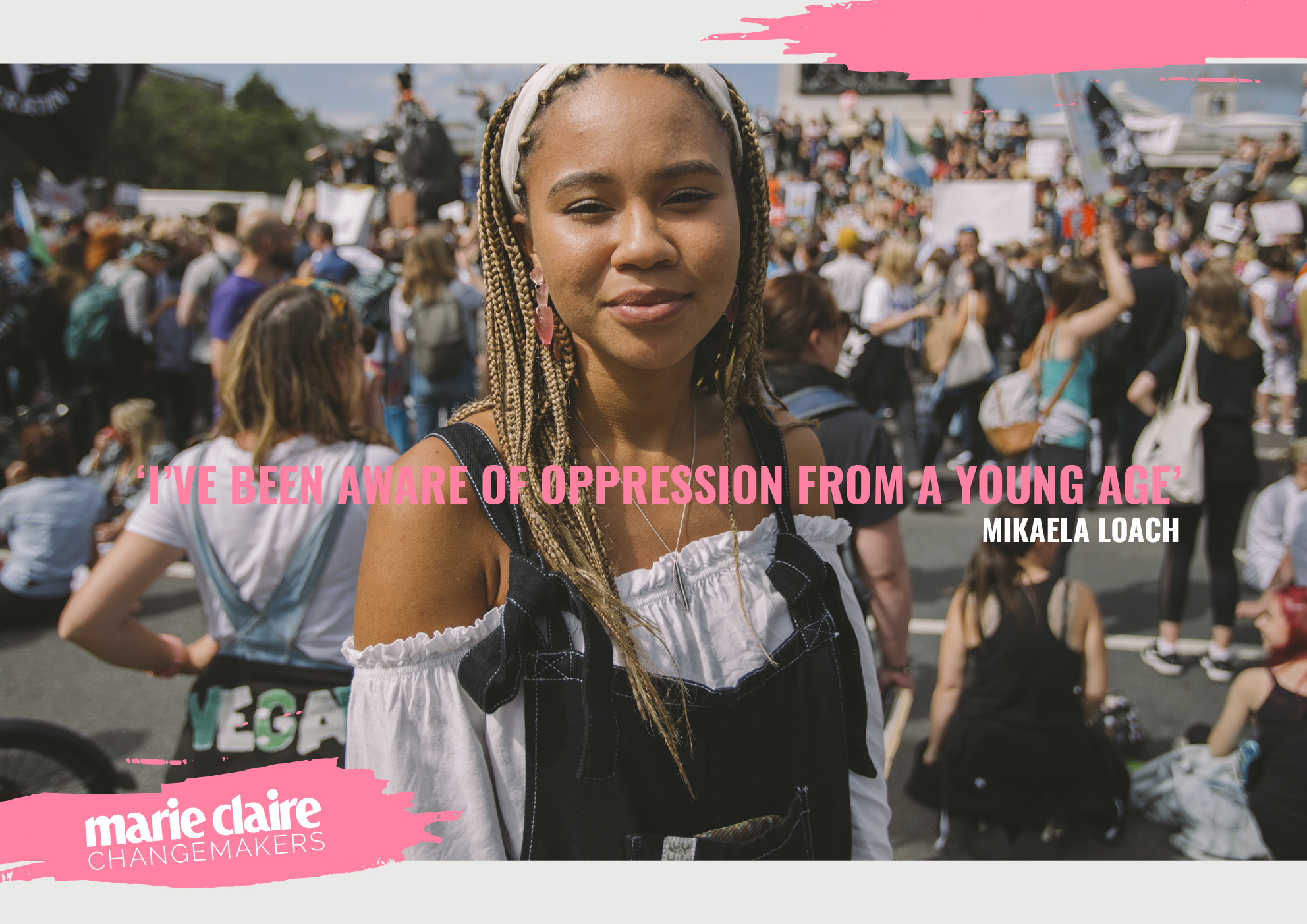
“I’ve been aware of oppression from a young age”
This 23-year-old medical student started her clinical placements during the pandemic but alongside her studies she’s also learning to deal with thousands of new followers who clicked ‘follow’ at the height of the BLM protest last summer. Here Loach explains why we all need to break up with fast fashion and how climate justice is inextricably linked to racial justice.
Forget a medical career, we predict this Gen Z warrior is heading for Downing Street.
Marie Claire Newsletter
Celebrity news, beauty, fashion advice, and fascinating features, delivered straight to your inbox!
What made you become a campaigner? “My activism started from being aware of oppression from quite a young age. I began campaigning for migrant and refugee rights, and making lifestyle changes to help ease the climate crisis. Consuming less, becoming vegan aged 17, quitting fast fashion and going zero waste. Then I realised all of these lifestyle changes aren't enough, they won't save the planet, because we need drastic changes.
“It's about more than individual changes and is more about having the privilege to make those changes. The climate crisis is inherently linked to issues of migrant rights and justice, and also to racial inequality. If we lobby governments and businesses and big institutions and if we do it from a systems change perspective, that's how we can create real change.”
Do you feel a big responsibility to educate and grow your 100k following? “Last summer my following grew significantly as a response to Black people being killed. I found this difficult to deal with as all these white people just felt guilty and want to learn about racism from me. But my work has been going on for so much longer. My work isn't for the benefit of white people. My work is for the benefit of the collective and collective liberation. It's not about helping people out with their guilt, it's about creating a whole new world. I’m not playing the social media game of engagement.
“I'd rather reach ten people in a really impactful way than reach thousands in a superficial way that doesn’t enact change. What I'm trying to do with my platform and The YIKES podcast [co-hosted with Jo Becker] is how can we say things that are meaningful, important and honest. Not worry whether we’ll get more ‘likes’, followers or listeners.”
Once you’re a qualified doctor, will you weave activism into your medical career? “I never want to stop talking about climate justice and racial equality and dismantling white supremacy. That’s what I care about so much, but I also really do enjoy medicine. My plan is to find a way to make both work. Dr Rosena Allin-Khan is an MP and a great advocate for so many different things, and she’s managed to balance everything.”
What can we all do in 2021 to make a difference? “There are so many parts of normal that I think we should leave behind. Normal was a condition in which the climate crisis was accelerating at an even greater speed. Normal was a place in which mass overconsumption was even greater than it is now. We have so much power to create change if we work together to do it. When we work together as a community, and when we organise together, we can create so much more change. Join a local like action group, whatever your skills are, you will be useful. We have so much more power than when we do these things individually.”
2. Grace Campbell: The Comedian Activist
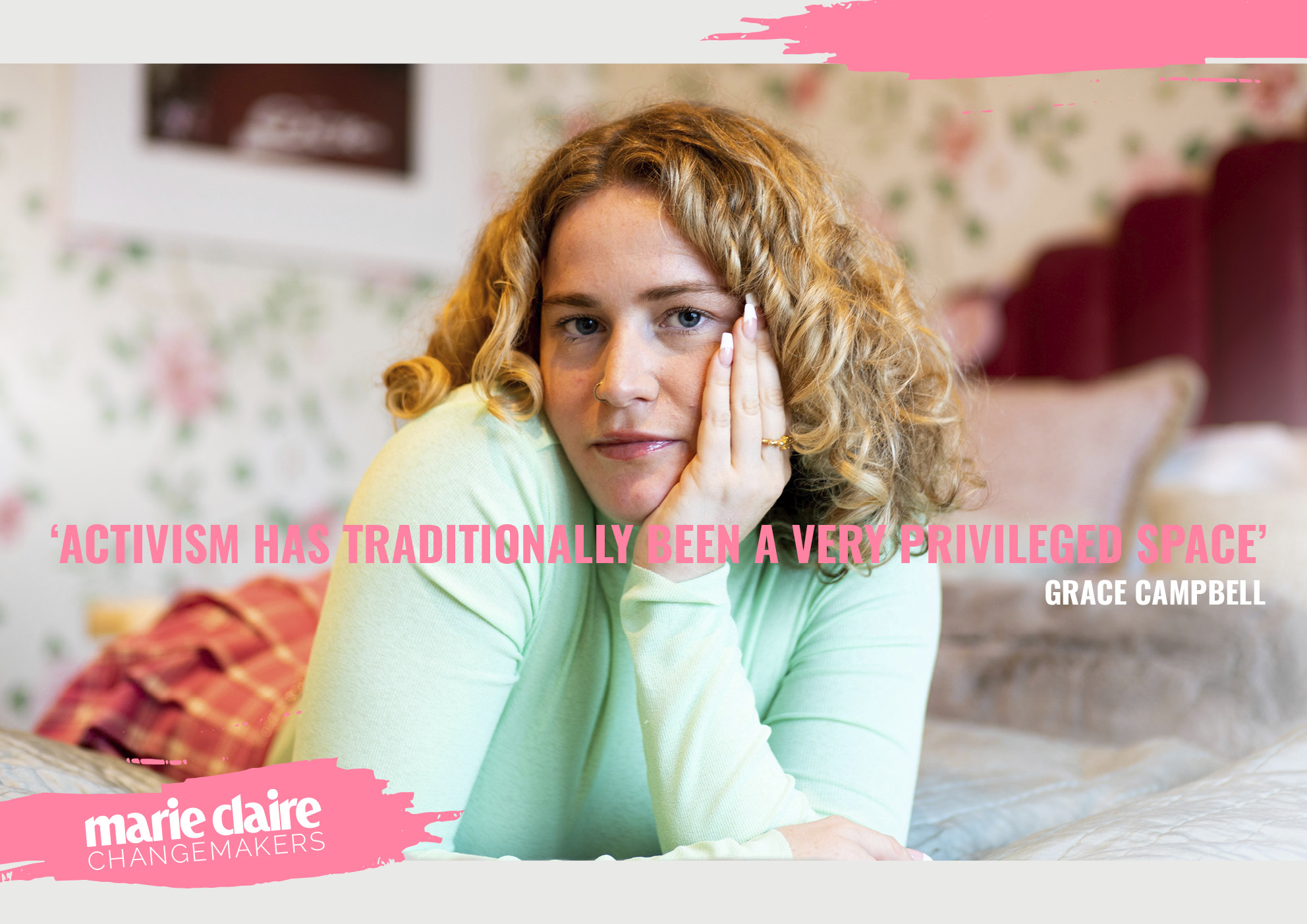
“Activism has traditionally been a very privileged space”
She’s the co-founder of The Pink Protest (along with Scarlett Curtis, Honey Ross and Alice Skinner), runs The Disgraceful Club (once venues are open) - a stand-up night for female and LGBTQ+ comedians and her latest book Amazing Disgrace (described as a part-memoir, part-manifesto) is a must-read that’s both hilarious, disturbing and wise way beyond her 26 years.
Charting her childhood - Dad's Alastair Campbell (former PM Tony Blair’s spin doctor) and Mum's Fiona Millar (Cherie Blair’s former advisor) - so it's no surprise the comedian has plenty to say. Campbell talks to us about her commitment to feminism and how she's using her privilege to amplify marginalised voices.
Amazing Disgrace covers everything about being Gen Z - from sexual consent to drugs and mental health. Did you get a lot of feedback?“I’ve had amazing responses, which makes me think it was all worth it. I wrote the book to help other people feel less alone in their experiences, young women in particular. Writing it was really hard and it took me to some pretty dark places. It was overwhelming in the beginning, I was replying to everyone because I felt so bad. Then Scarlett [Curtis] told me I can’t take on everyone else's stuff. I really hope my writing and comedy can be the most powerful form of activism as well, by making people laugh and think about things.”
Are you planning on doing more with Scarlett and the rest of The Pink Protest? “I think so yes, but we're all in agreement that activism has become different over the last year. When we started The Pink Protest we wanted to create a space to bridge the gap between online activism and change making. And I actually think that’s happened in 2020.
“Our focus now is using our platform to champion other people's voices, and campaigns that don't have as much reach as they could. Like Scarlett said recently, we are four white women who don't want to take up too much space in a place saturated with white people. Activism has traditionally been a very privileged space and that's really changing now. White women ended up having voices that were too loud in a space that wasn't really for them and speaking on behalf of other people. Like all white women I’ve been guilty in doing that. I hope that's something we will truly leave behind now because it's gross. Our priority is to make sure we're always offering resources where we can and basically put our money where our mouth is.”
What impresses you most about Gen Z activism? “When I was 18 I was on Hampstead Heath taking MDMA, and now there are all these 18 year olds who are ahead of the game, and that’s exciting. For so long, only privileged people could be an activist because obviously you don't get paid to do it, or didn't historically. I know people are really critical of Instagram activism, I get it, because it does feel slightly contradictory. But it means Gen Z can fund what they're doing by having a following online and having Patreon and things like that. Actually, in a lot of ways, the model makes sense. It democratises activism and makes it not just something that middle-class, private-school educated people are taking part in.”
3. Maya Ghazal: The Refugee Advocate
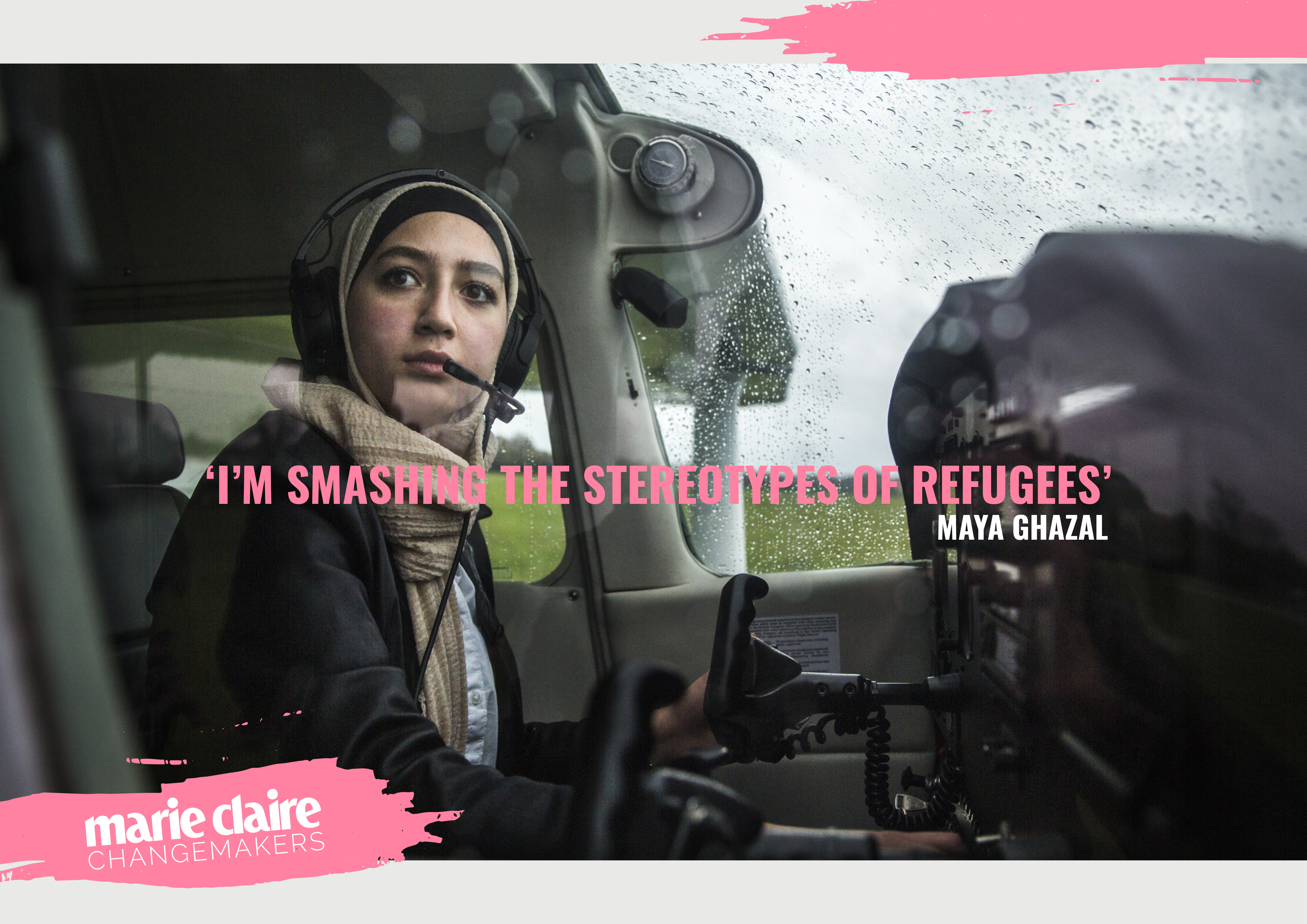
“I'm smashing the stereotypes of refugees ”
Maya Ghazal is a Syrian refugee, a student, an activist, a Goodwill Ambassador for UNHCR, the UN Refugee Agency and the first female Syrian refugee pilot. A pretty impressive CV, and she’s still only 21. Four years ago, Ghazal fled war-torn Syria and arrived in the UK not speaking a word of English.
Now she’s a passionate public speaker. In a 2019 TED talk Ghazal made the case for investing in the limitless potential of refugees, explaining how no one believed she would ever succeed in becoming a pilot because of her gender. Maya wants to be a role model for refugee girls, showing they can achieve any dreams they set themselves.
What drives your activism?“I want my story to smash stereotypes about refugees being uneducated, or women not being able to succeed in STEM careers. I want to prove the haters wrong and to inspire other refugees to believe in themselves and their abilities.
“When I arrived in the UK on a family reunion visa, I tried to enrol at school but was rejected. So I worked hard at home and taught myself English. Eventually I got a place. Then I discovered a love for engineering and planes and now I’m studying Aviation Engineering at Brunel University in London. In 2019, I gained my private pilot’s licence and eventually want to be a commercial pilot.”
What are your plans to bring real change in 2021? “2020 was a tough year. Lockdown brought back many memories of Syria. We were stuck inside our houses because of the conflict, rationing our meals, electricity and water all the time, uncertain about the days and weeks ahead. So in my role as a Goodwill Ambassador for UNHCR I’ll continue to use my voice to bring change to the lives of other refugees, to tell their stories, and amplify their voices. I am very proud of this title and I will work every day to honour it.
"I am lucky to have a home, at a time when so many refugees are suffering the hardships of living in camps. I’d like to see more people challenging stereotypes, and communities standing together against discrimination. Even the smallest act of kindness can make a huge change in someone’s life.”
4. Sophie Kabangu: The Black Lives Matter Mentor
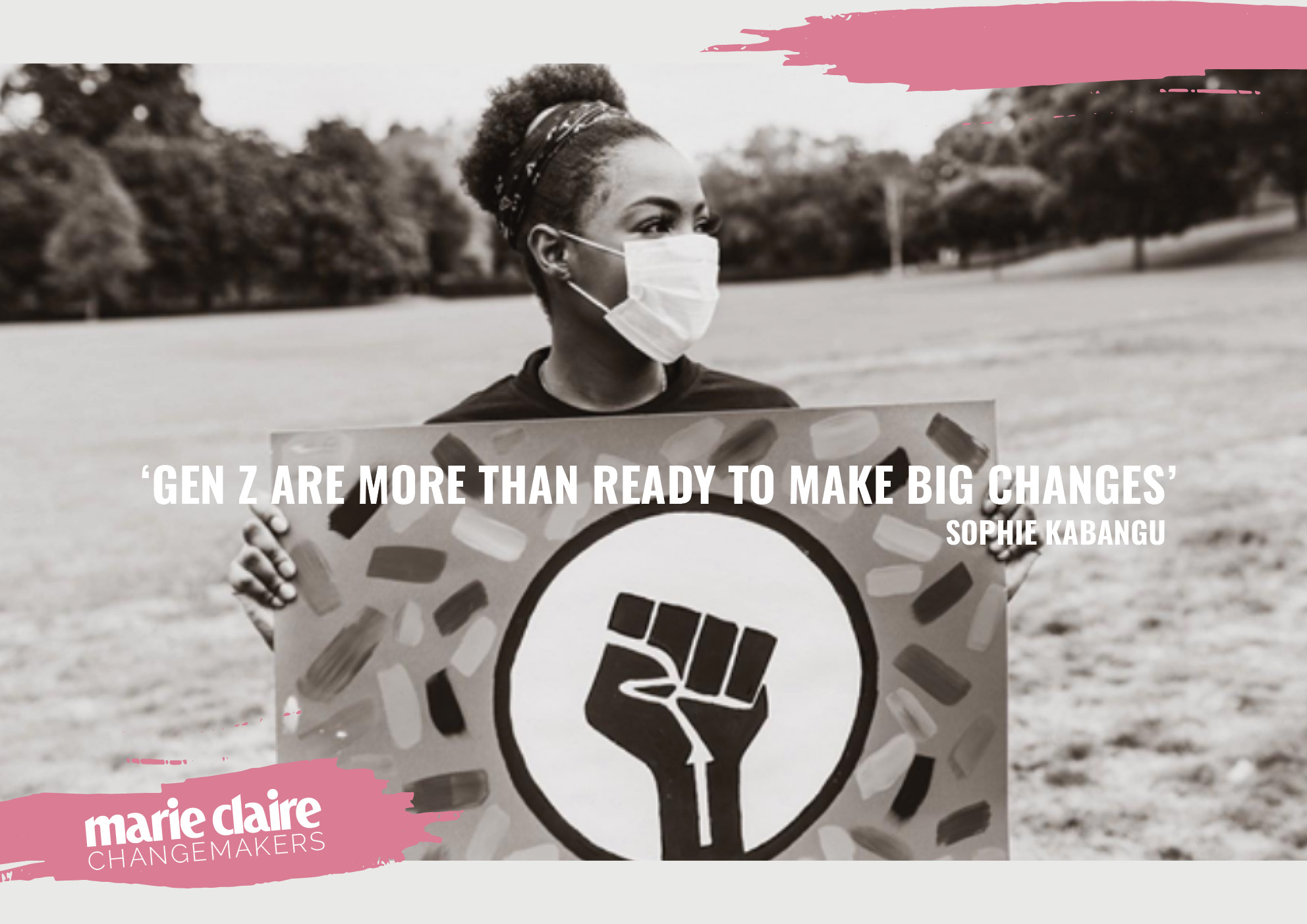
“Gen Z are more than ready to make big changes”
Sophie Kabangu is a 22-year-old human rights defender and University of Essex student. Outraged by the killing of George Floyd last year, Kabangu organised Black Lives Matter demonstrations in Colchester. She is also part of Amnesty International UK’s Rise Up, a programme uniting young human rights defenders. Kabangu shares with Marie Claire her four key points on how to become a changemaker.
We can all be brave and courageous “I’m really a shy person but 2020 was the year I stepped out of my comfort zone and started being brave. I was so upset by the killing of George Floyd that I couldn’t stay quiet anymore. I launched Black Lives Matter Colchester in June and we had our more than 1,500 on our first-ever protest. This past year has taught me people who pluck up the courage to help others and make a change are just ordinary people, like you and me.”
Change starts at grassroots level “Too many believe you have to be an extraordinary person with great credentials in order to make a difference. In reality, if you feel in your heart something is wrong and you have an idea of how to help others, you can. Change starts at the grassroot levels.”
Join Amnesty for extra support “Amnesty UK Rise Up gave me all the confidence I have now. One of the reasons I was able to launch Black Lives Matter Colchester was because of all the skills I learned at Rise Up. I was fortunate to meet incredible people who have campaigned for change. Their stories of how they started their campaigns was extremely inspirational and encouraging.”
You’re never too young to campaign “Before lockdown, I was walking through Colchester town and saw two girls, who looked about 13, standing on the street and shouting for female equality. I was so moved by them. Gen Z are acknowledging injustices at such a young age and we’re so ready to make big changes.”
5. Amika George: The Period Poverty Pioneer
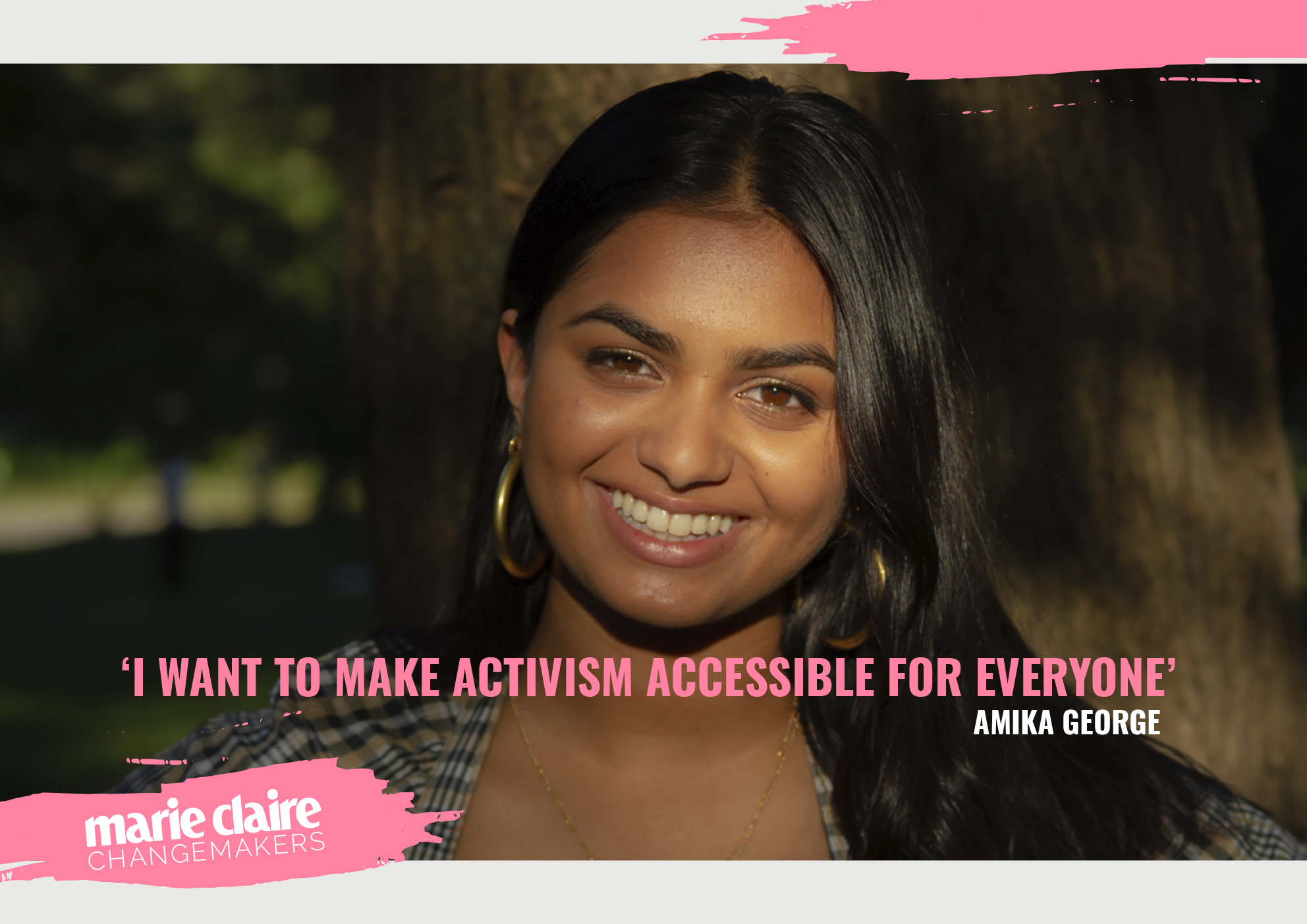
“I want to make activism accessible for everyone”
This awe-inspiring 21-year-old launched Free Periods - a campaign aiming to end period poverty - when she was 17. Appalled by the fact that one in 10 girls can’t afford to buy menstrual products in the UK, George started campaigning: gathering thousands of signatures for an online petition, staging a 2,000-strong peaceful protest outside Downing Street and taking legal action.
Then, in March 2019, the government declared free menstrual products would be available in all secondary schools and colleges in England. Job done you’d think, but not for George. Now at Cambridge studying history, she’s intent on ending the stigma surrounding periods, and working to ensure access to free period products in secondary schools will be enshrined in law. George tells us about her plans and her essential and inspirational step-by-step guide Make It Happen: How To Be An Activist which is on sale now.Has the pandemic affected your campaigning work?
“In some ways, it’s been brilliant. Lockdown has allowed me to do panels and meetings I couldn’t ordinarily have physically attended between lectures, which I’ve loved. Social media-led activism mobilised online activism in an incredible way, leading to shifts in policy and public perception globally. I can see how there’s a renewed momentum to keep that going post-pandemic, making activism accessible for absolutely everyone.”
What life lessons do you hope people have learnt over the past year?
“I really hope we’ve all learnt how to live at a much slower pace. I think, pre-pandemic, most of us were living at a hyper-individualistic, frenetic pace. The pandemic has forced most of us to stop and start to see things with a new clarity. Covid has exposed so many cracks in our communities, so I hope we will ask ourselves who we want to be post-pandemic, how we want to live and consume, and what we can each offer to the world.”
Amika’s top three Make It Happen strategies for changemakers
1. Do something small “The most important thing to realise is that you don’t have to create a big, flashy global campaign to make real change. Change can be small and incremental, quiet and in the shadows, and it can be just as effective. Do something small that you feel comfortable with, then do something else, and know that even if that one small thing has affected just one person and improved a moment for them, you’ve made a difference."
2. Connect and collaborate with like-minded people "Look for others who are fighting for the same thing. Search on social media, DM them, ask to meet them for a coffee. Join their campaign, or work collaboratively. When I started Free Periods, it was just me, on my own. I was at the point of burning out because I’d pushed myself so hard. Then I met other activists and went on to form Free Periods as a company. It felt like I’d offloaded a huge weight. From a mental health perspective, it was absolutely essential and I wonder what might have happened if I hadn’t."
3. Remember, change comes slowly "When I first started off trying to eliminate period poverty in schools, I found it incredibly frustrating that things were moving so slowly. I’ve learnt change is often slow and tedious, and often invisible. Weave activism into your life so it sits alongside your day to day. That way, you are much more in control, and you decide when you have the capacity to ramp it up a notch."
Maria Coole is a contributing editor on Marie Claire.
Hello Marie Claire readers – you have reached your daily destination. I really hope you’re enjoying our reads and I'm very interested to know what you shared, liked and didn’t like (gah, it happens) by emailing me at: maria.coole@freelance.ti-media.com
But if you fancy finding out who you’re venting to then let me tell you I’m the one on the team that remembers the Spice Girls the first time round. I confidently predicted they’d be a one-hit wonder in the pages of Bliss magazine where I was deputy editor through the second half of the 90s. Having soundly killed any career ambitions in music journalism I’ve managed to keep myself in glow-boosting moisturisers and theatre tickets with a centuries-spanning career in journalism.
Yes, predating t’internet, when 'I’ll fax you' was grunted down a phone with a cord attached to it; when Glastonbury was still accessible by casually going under or over a flimsy fence; when gatecrashing a Foo Fighters aftershow party was easy-peasy-lemon-squeezy and tapping Dave Grohl on the shoulder was... oh sorry I like to ramble.
Originally born and bred in that there Welsh seaside town kindly given a new lease of life by Gavin & Stacey, I started out as a junior writer for the Girl Guides and eventually earned enough Brownie points to move on and have a blast as deputy editor of Bliss, New Woman and editor of People newspaper magazine. I was on the launch team of Look in 2007 - where I stuck around as deputy editor and acting editor for almost ten years - shaping a magazine and website at the forefront of body positivity, mental wellbeing and empowering features. More recently, I’ve been Closer executive editor, assistant editor at the Financial Times’s How To Spend It (yes thanks, no probs with that life skill) and now I’m making my inner fangirl’s dream come true by working on this agenda-setting brand, the one that inspired me to become a journalist when Marie Claire launched back in 1988.
I’m a theatre addict, lover of Marvel franchises, most hard cheeses, all types of trees, half-price Itsu, cats, Dr Who, cherry tomatoes, Curly-Wurly, cats, blueberries, cats, boiled eggs, cats, maxi dresses, cats, Adidas shelltops, cats and their kittens. I’ve never knowingly operated any household white goods and once served Ripples as a main course. And finally, always remember what the late great Nora Ephron said, ‘Everything is copy.’
-
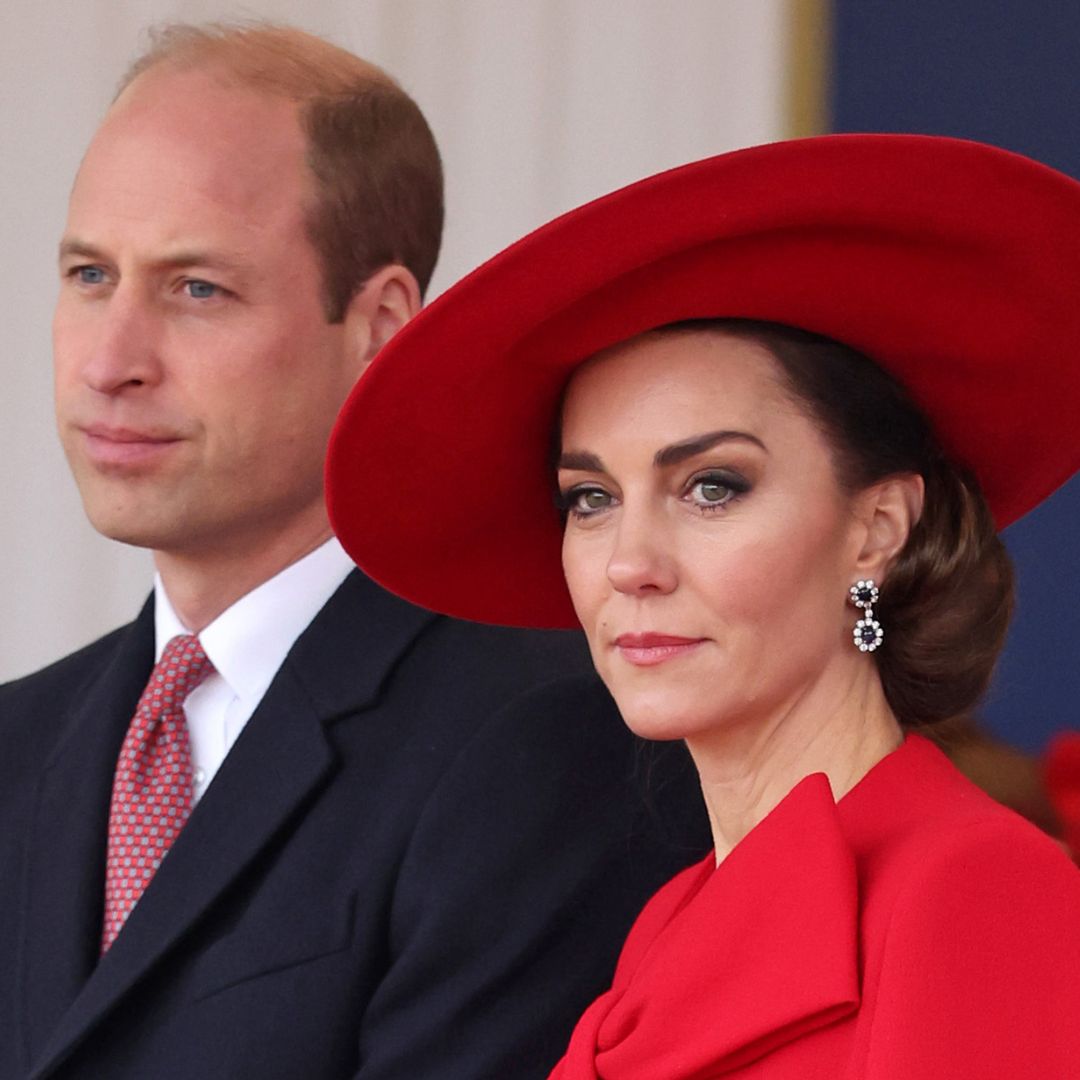 Prince William and Princess Kate's Easter absence has reportedly "raised eyebrows at the palace"
Prince William and Princess Kate's Easter absence has reportedly "raised eyebrows at the palace"By Jenny Proudfoot
-
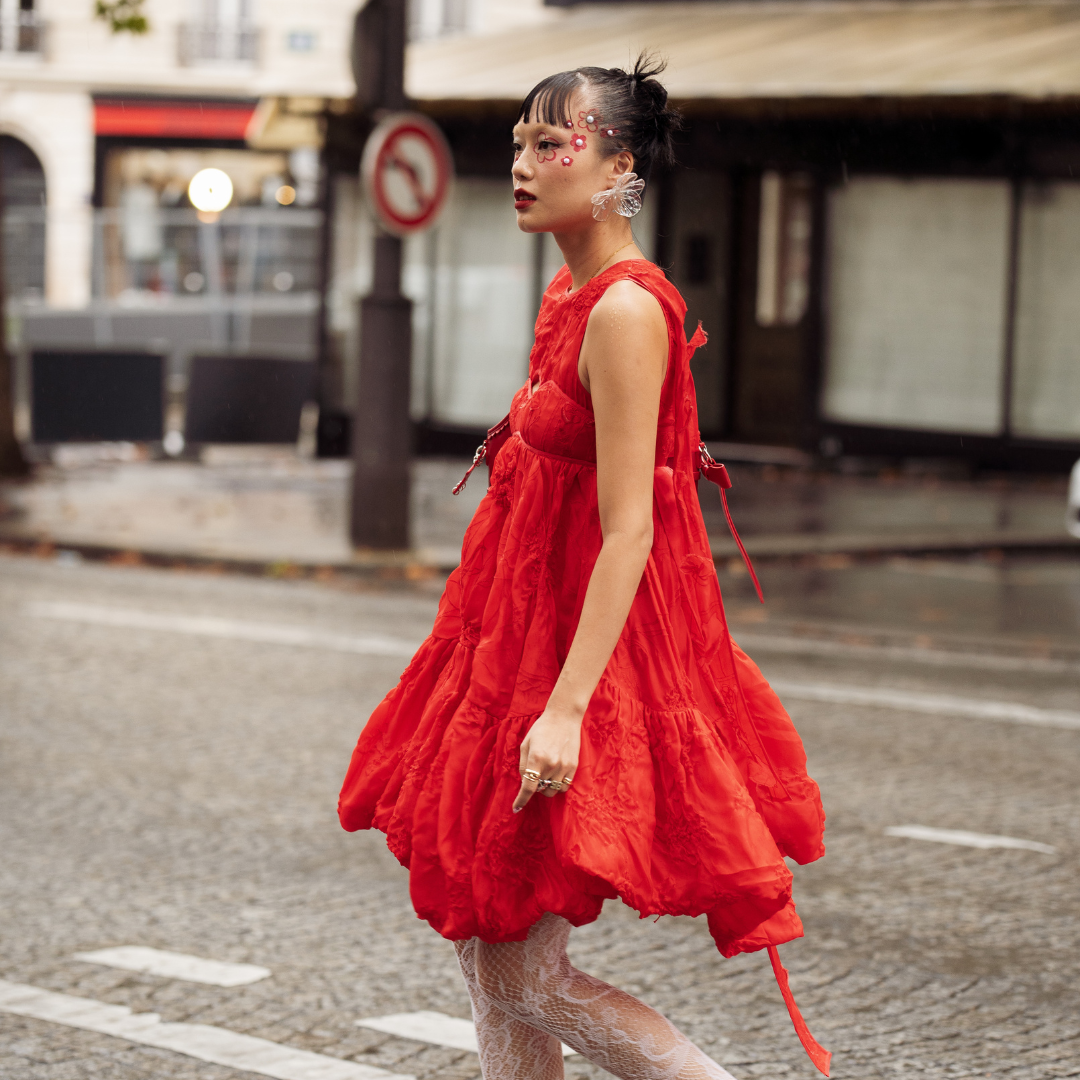 This divisive Nineties trend just got a high-fashion makeover
This divisive Nineties trend just got a high-fashion makeoverAll the cool girls are wearing babydoll dresses again
By Sofia Piza
-
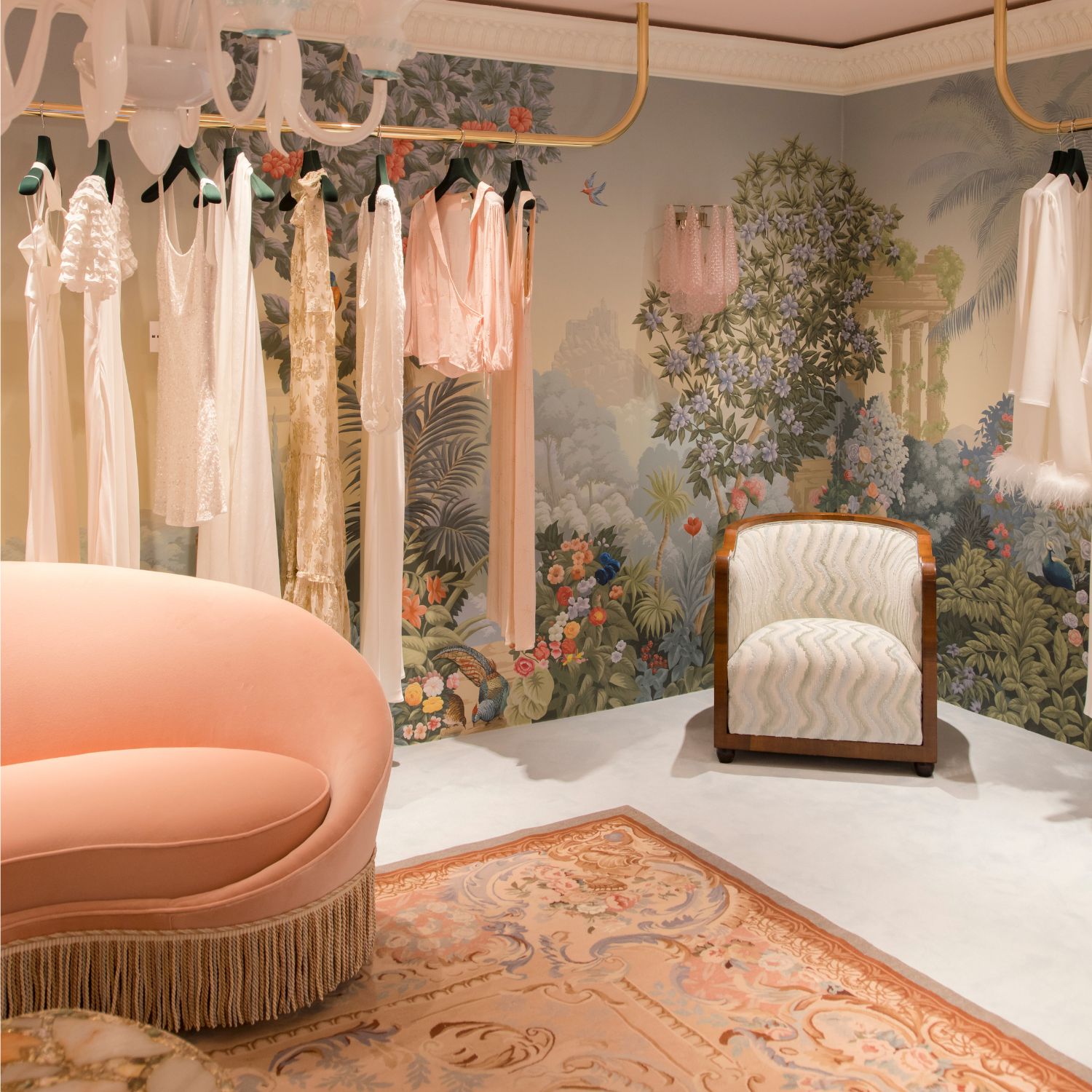 These are without a doubt the best wedding dress shops in London
These are without a doubt the best wedding dress shops in LondonThe search for your dream bridal look is over
By Jazzria Harris
-
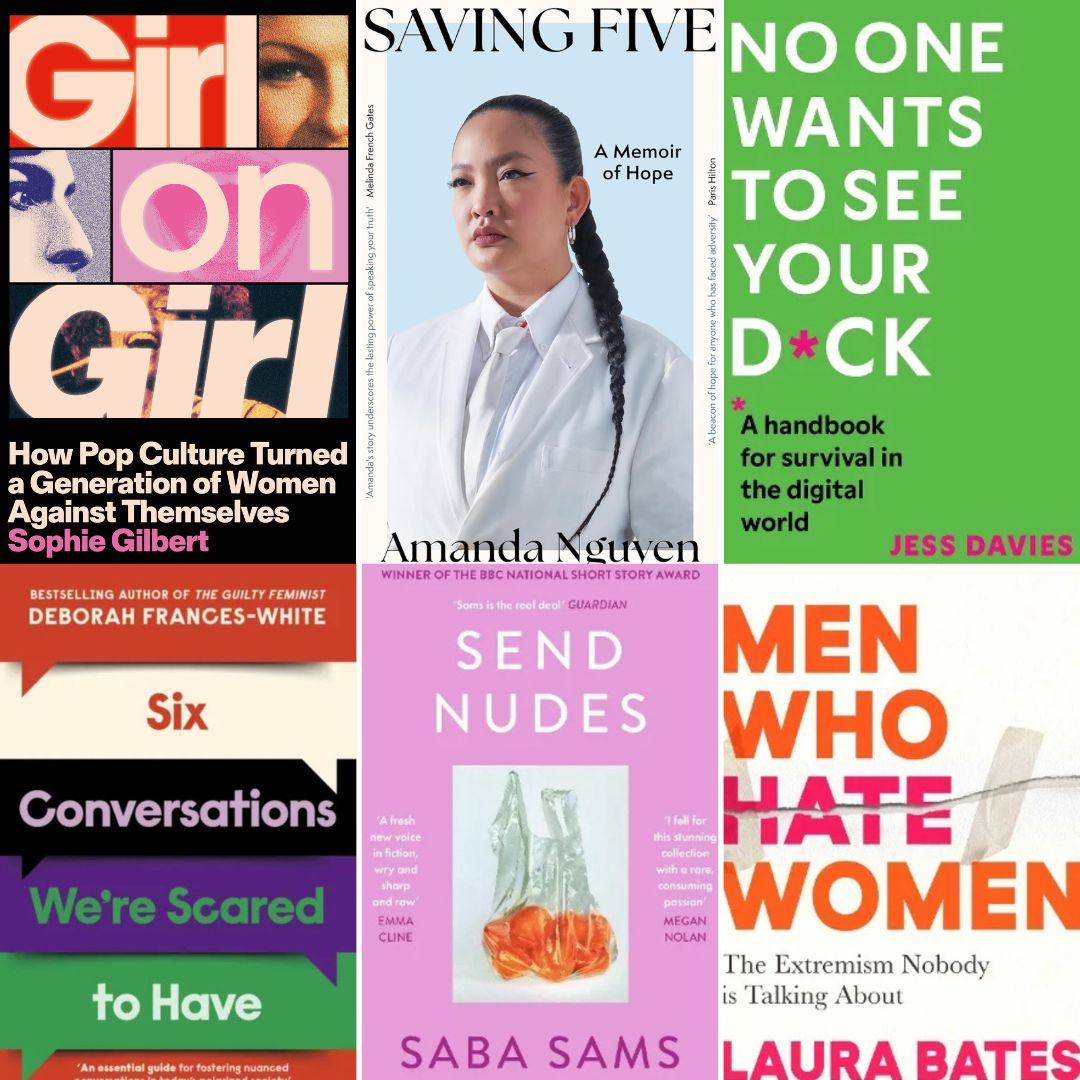 20 feminist books about women's rights to add to your reading list right now
20 feminist books about women's rights to add to your reading list right nowThe only reading list you'll need this International Women's Day
By Mischa Anouk Smith
-
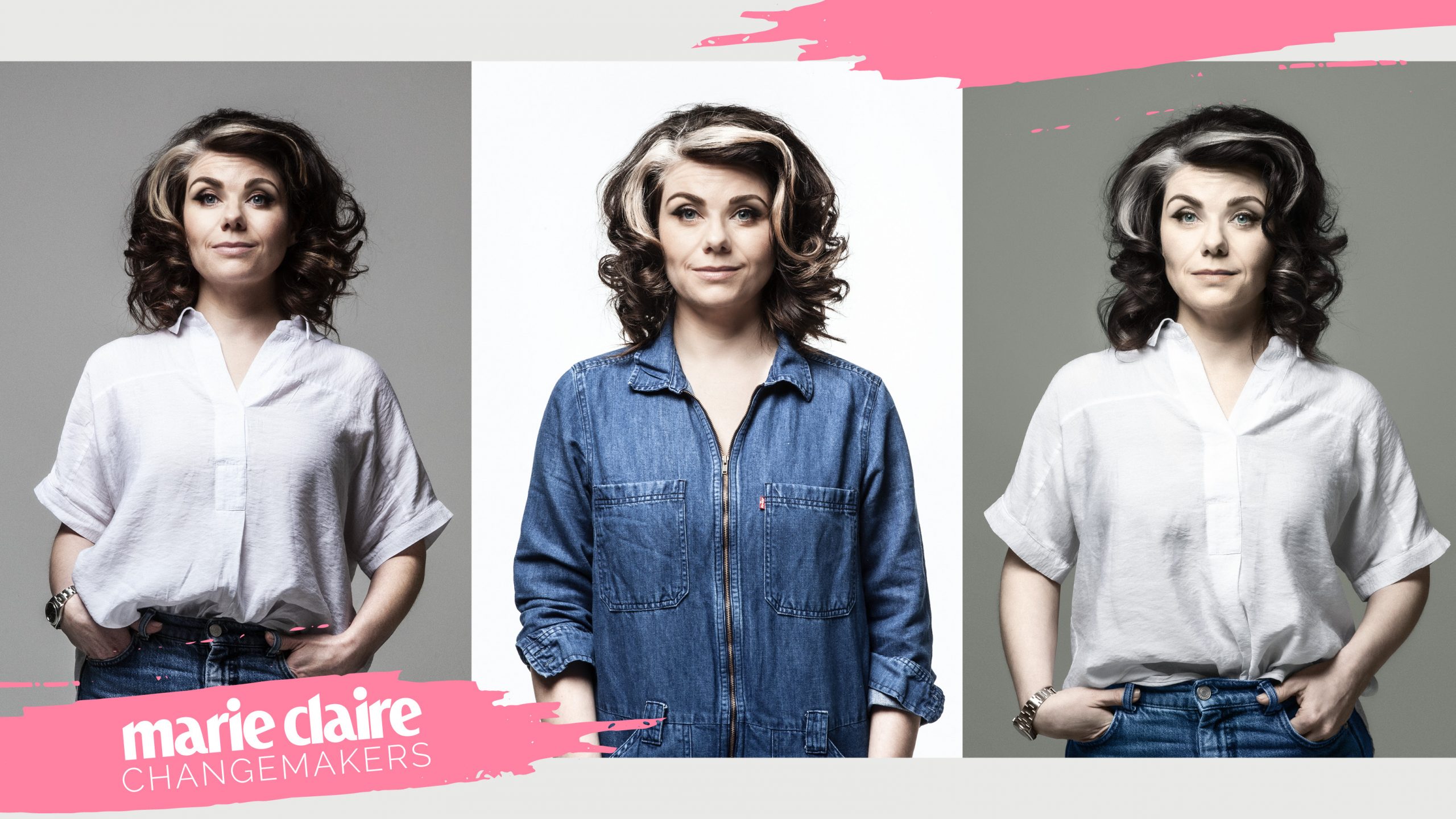 Caitlin Moran: 'The only argument you should be having in feminism is one with yourself'
Caitlin Moran: 'The only argument you should be having in feminism is one with yourself'By Jenny Proudfoot